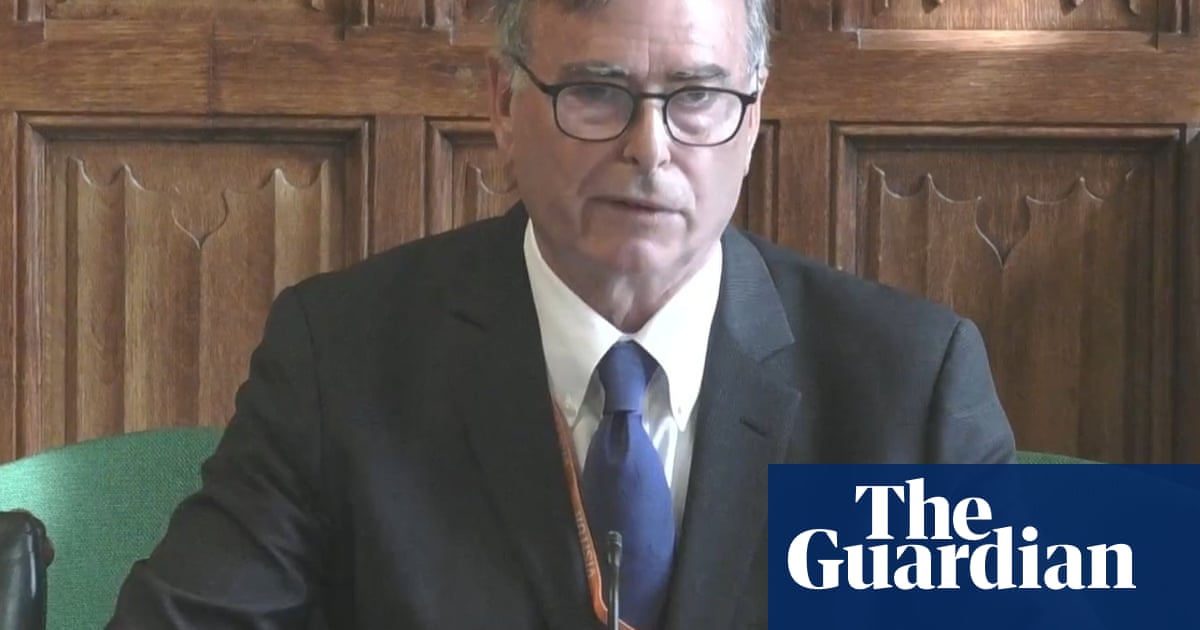The government’s preferred candidate to becomethe independent regulatorof English football has warned the Premier League and EFL they have less than 18 months to agree a deal on financial redistribution.
David Kogan sat before the culture, media and sport select committee in parliament on Wednesday in a pre-appointment hearing to assess his suitability. Across two hours he set out his vision for a job he said had become “more important and more pressing” since it was first proposed and argued the regulator’s job was “to help the pyramid survive”.
The central issue of the distribution of funds from thePremier Leagueto the EFL was one Kogan returned to frequently. He urged the two organisations to use the time between the passing of legislation and the introduction of the regulator to strike a deal and avoid recourse to the regulator’s agreed backstop powers to force a settlement.
“People talk about the backstop as the nuclear option but I prefer to think of it as a tactical weapon,” Kogan said. “I think it’s one I would absolutely urge the world of football not to invoke. We have got time. You can’t enact the backstop until a ‘state of the game’ report is produced and written and consulted on. There is an 18-month window to do that but in reality it is going to be shorter. From the moment we are commissioned in the secondary legislation there is probably at least a year where there is time for football to agree amongst themselves. The more they agree amongst themselves and the less we have to be involved the better. But we will see where we get to. Legislation has set the clock ticking.”
Kogan said he believed football could be run in such a way that there is no trade-off between a competitive top flight and a financially secure pyramid, but he made clear the preservation of the pyramid was top priority.
“There are [fiscal] cliff edges throughout the game,” he said. “Between the top six and the rest, then the rest of the Premier League and promoted teams, then teams with parachute payments, then the Championship and then further down the pyramid. It’s a series of fiscal cliff edges all of which have become sharper and more stark. If you believe in the pyramid then you’ve got to believe that Southend has a right to be sustained as much as Spurs. It is a pyramid and it has to be treated as such. Our job is to help the pyramid survive.”
Kogan is a Spurs supporter and someone whose expertise as a negotiator has been called on by the Premier League, EFL, Scottish ProfessionalFootball Leagueand Women’s Super League across three decades working in the game. “I understand, as much as anyone can understand, the politics of football”, he said. “I am resilient. I come from a background of corporate governance. The one thing I don’t have is background in regulation, but those skills make me a viable candidate. I want to do the job because I really think I can give the regulator elements it needs to do its job properly. I am ambitious and hungry and believe in football.”
The 67-year-old is also a Labour party grandee who has made donations in the tens of thousands of pounds to Labour candidates and was on the board of the LabourList website until standing down this month. In the hearing he revealed he had given donations to the leadership campaigns of Keir Starmer and Lisa Nandy, now the culture secretary, in 2020. “That hasn’t been discovered by the press and I’m happy to declare it now,” he said, adding: “I am glad to put on the public record my personal independence and my absolute independence politically.”
Kogan addressed a number of areas related to the regulator raised by stakeholders. He said he was concerned with regards to “proportionality” over who would pay the regulator’s costs, including those of defending potential litigation brought against the regulator. “Not only do I want the burden on small clubs to be as small as possible, I want the regulator to have a help desk within it,” he said. “We will supply accounting practices, we will send a team to you [to help].”
Sign up toFootball Daily
Kick off your evenings with the Guardian's take on the world of football
after newsletter promotion
Also of concern to Kogan was the role of supporters. He argued that the provision in the football governance bill for fans to be guaranteed regular consultation with their clubs was a “pretty remarkable step forward” and said that information gathered by fans could help the regulator make better assessments of the state of clubs.
“The regulator is there to improve resilience and our knowledge of what is actually going on,” he said. “I would say to fans, owners and managers of leagues the regulator is there not as a cop; it is there to help.
“We are going to act to the benefit of football and to fans to keep this pyramid going. English football is a remarkable achievement, in 150 years it has gone through enormous change. Change is good, change is growth, but it is also a risk if it is not managed properly. I think we’re there to help manage it properly.”
